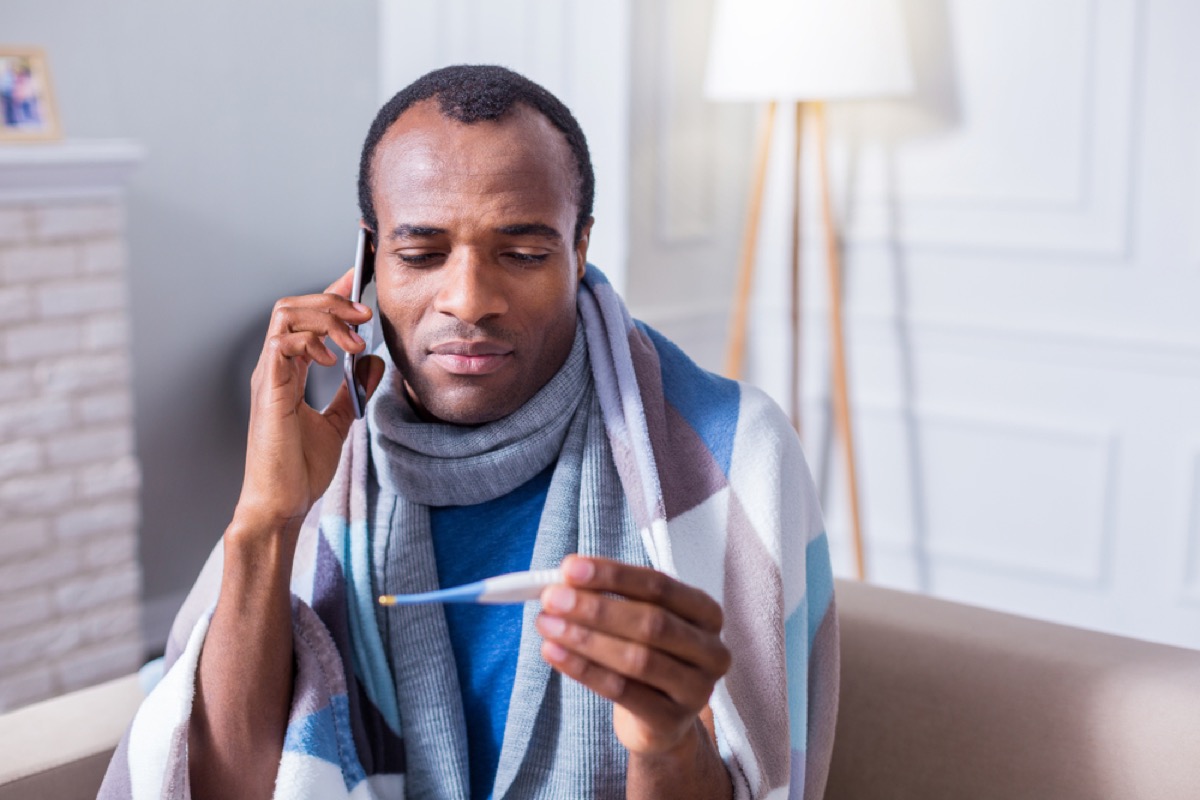“Our results prove that his second infection is caused by a new virus that he acquired recently rather than prolonged viral shedding,” clinical microbiologist Kelvin Kai-Wang To, MD, told The Times. The man was “diagnosed 4.5 months after the first episode,” according to the statement released by the researchers. He had been traveling in Spain, where he contracted a strain of COVID that matched the COVID strain circulating in Europe at the time. RELATED: For more up-to-date information, sign up for our daily newsletter. Of course, this news might seem disheartening—especially for those holding out hope for long-term protection from coronavirus or naturally occurring herd immunity. But in a Twitter thread, Harvard Global Health Institute (HGHI) Director Ashish Jha, MD, called the confirmation of coronavirus reinfection “interesting but not alarming.” First, Jha noted, reinfection still “appears to be rare,” although he acknowledged that it’s not something that researchers have studied extensively. Second, and more importantly, the COVID patient was asymptomatic when the reinfection was discovered. As the statement from the University of Hong Kong researchers noted, the man was “apparently … healthy.“ae0fcc31ae342fd3a1346ebb1f342fcb Per The New York Times, the patient had only mild coronavirus symptoms the first time he got sick, and no symptoms the second time. There has been some research that shows patients who are asymptomatic are more likely to get COVID again, and that may hold true for patients with mild symptoms as well. There appears to be a correlation between the severity of a patient’s COVID symptoms and their level of antibodies: A June study published in Nature Medicine found that asymptomatic patients produced fewer antibodies, which could make them likelier to contract coronavirus again. The fact that the patient’s first COVID case was minor may help explain his reinfection, as it’s possible his body did not create as many antibodies, thereby making him more susceptible to getting sick again. But the key takeaway is that this patient’s second bout with coronavirus was asymptomatic, even more mild than his first case—and that’s the good news that many members of the medical community had hoped for, Jha explains. “This is exactly what one would want to see with immunity—that you can pick up virus again but that it won’t cause serious illness,” he tweeted. So while COVID reinfection does indeed appear to be possible, with your immune system recognizing the virus, your chances of getting seriously ill seem less likely. And for more on how your body fights off coronavirus, Dr. Fauci Says This May Already Be Keeping You Safe From COVID.
